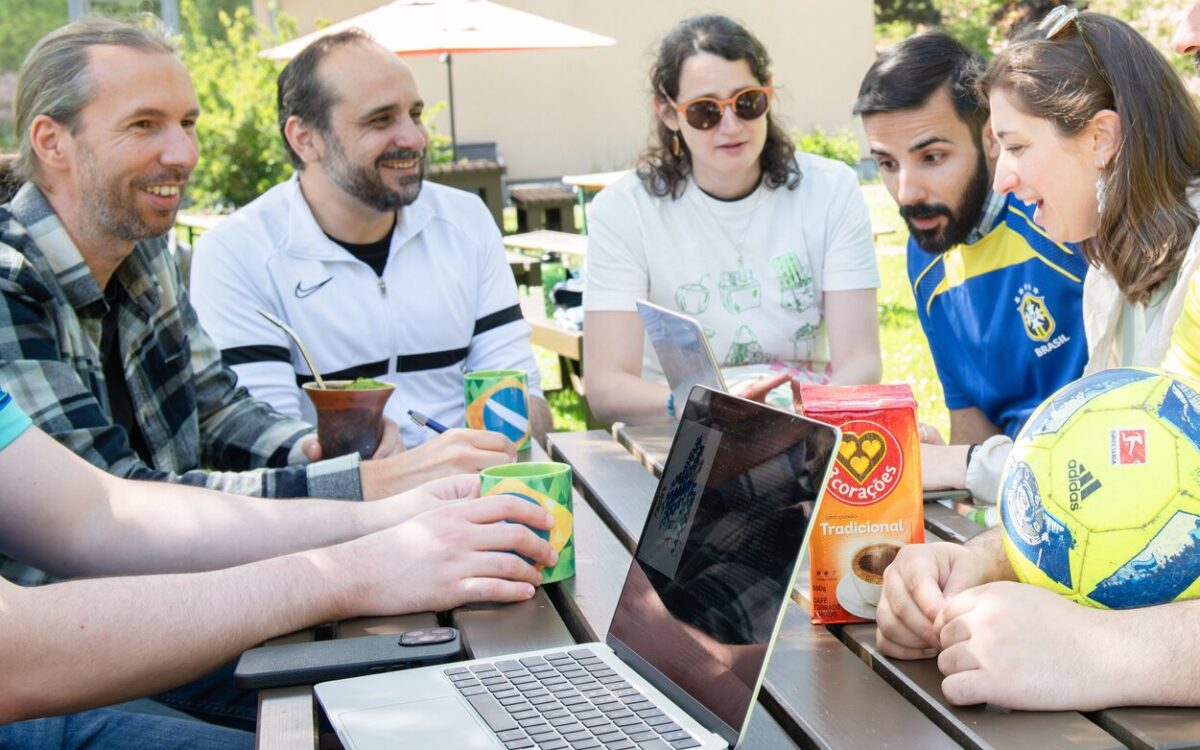Ricardo Giehl describes the Brazilians at the IPK as successful, cheerful and committed. Having arrived in Gatersleben 15 years ago, he explains how his compatriots have found their feet at the institute.
First things first: “None of us can play football very well,” says Ricardo Giehl, smiling as he picks up on one of the clichés many people associate with Brazil. However, the Brazilian community at the IPK is strong. They lead research groups, play an active role in the PhD and postdoc boards and are involved in the IPK Club. Nobody knows this better than Ricardo Giehl. The 43-year-old joined the IPK in 2010 and is the longest-serving Brazilian there. He currently has two compatriots, Gabriel Ragazzo and Rodolfo Maniero, in the ‘Molecular Plant Nutrition’ research group that he heads. “Both were recommended to me some time ago by a Brazilian colleague who supervised their Master’s theses and whom we know from his time at the University of Hohenheim in Stuttgart.” Both have quickly made a name for themselves at the IPK and beyond. Until recently, Ragazzo was the spokesperson for the PhD Student Board at the IPK and the Leibniz PhD Network. He was thus the voice of the doctoral students at all 97 Leibniz Institutes. Not only was Rodolfo Maniero active on the PhD Student Board, he was also the first author of a publication in the scientific journal Nature Communications.


